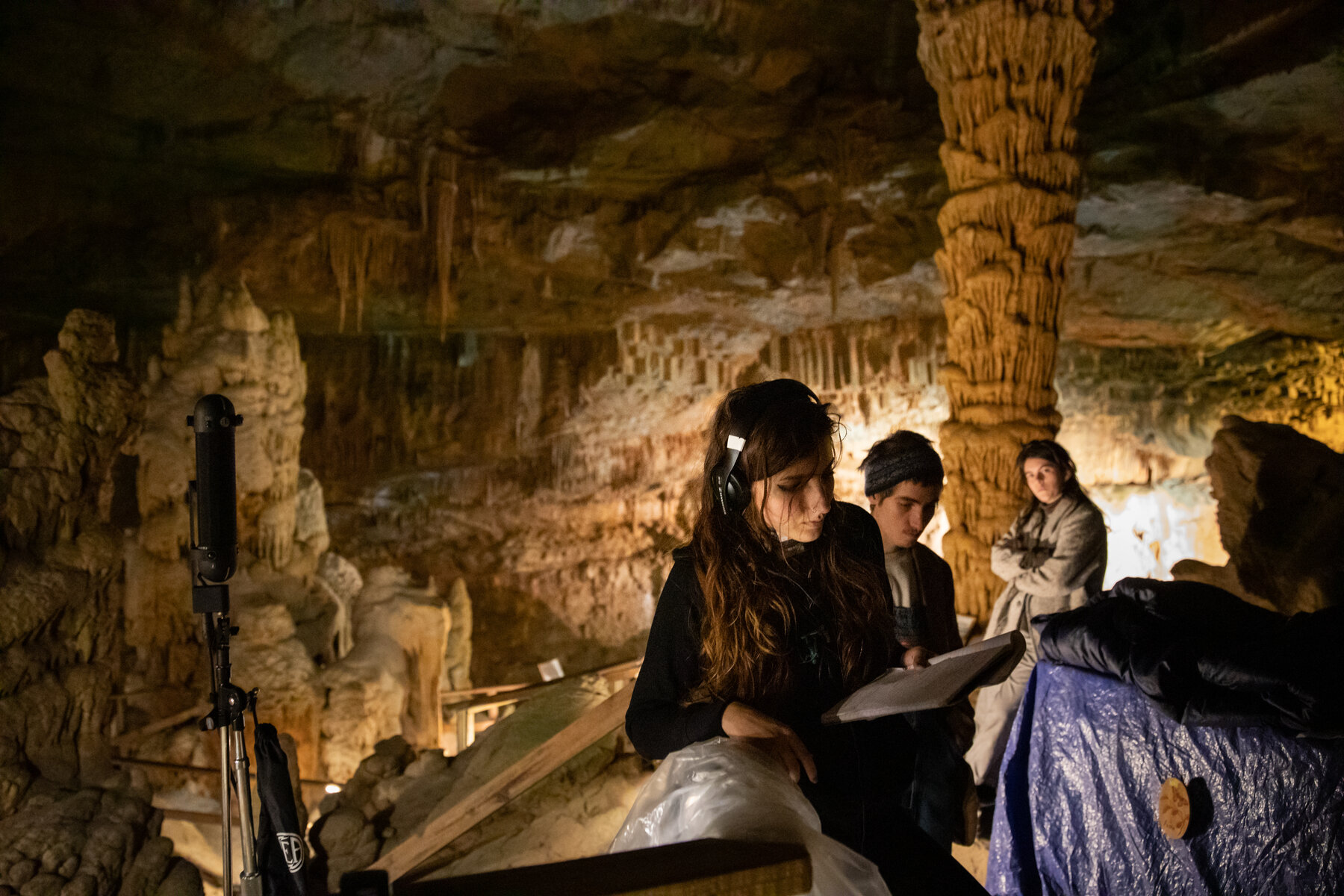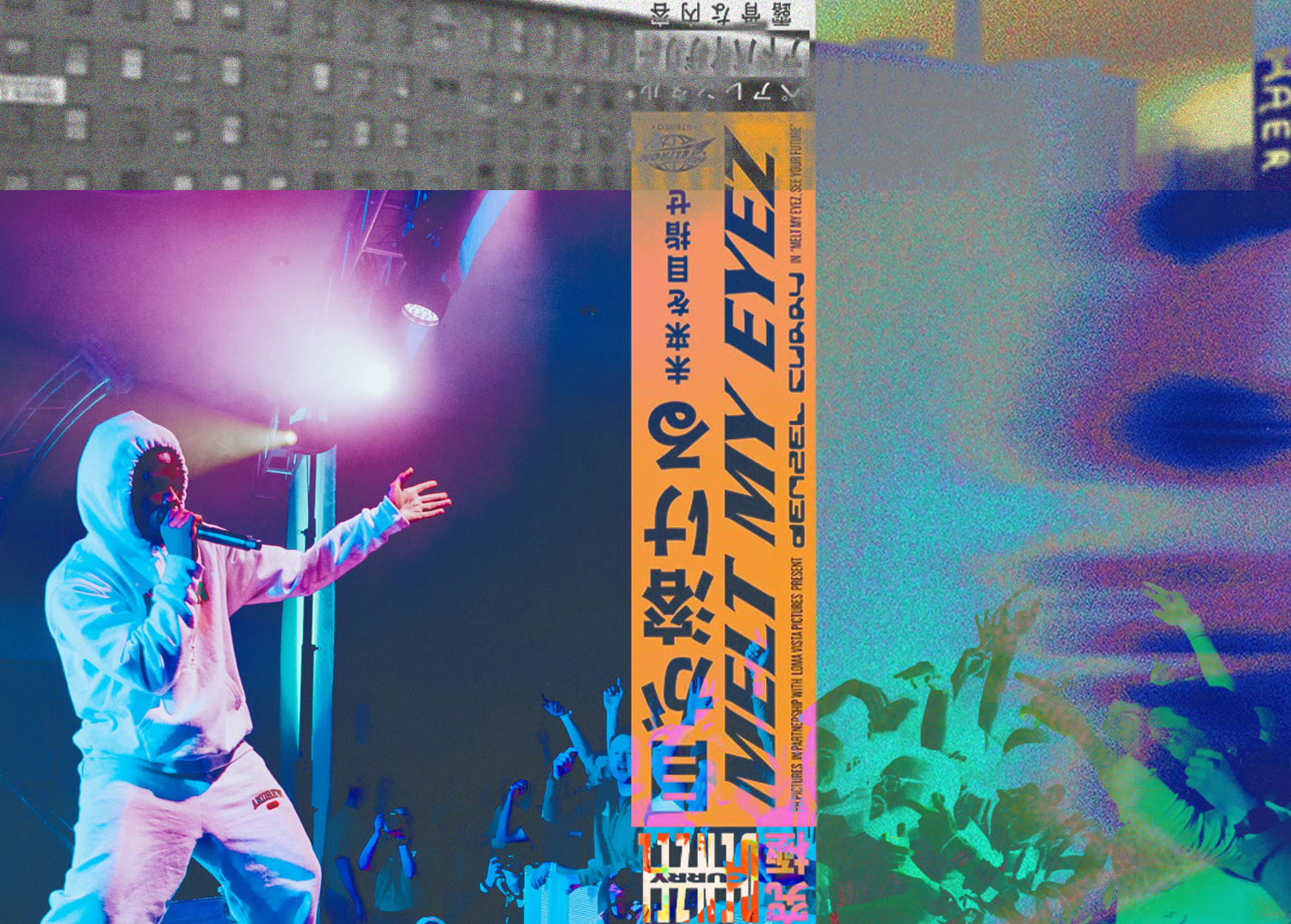Sloppy Jane
at Brighton Music Hall

Words: Kian Braulik
November 20, 2022
November 20, 2022
After signing with Saddest Factory Records in 2021, Sloppy Jane quickly released their critically-acclaimed sophomore album Madison. Recorded two-hundred feet underground in Lewisburg, West Virginia’s Lost World Caverns, Madison touts a sonic richness unmatched by any of its indie bedfellows. Without its characteristic echoes and drips, the Madison Tour didn’t fail to disappoint live in Brighton this October.

I started listening to Madison the December after its release. During breaks between each semester, I typically linger in Providence in order to avoid dealing with my family. Their bouts of judgment in combination with the holiday rush isn’t my flavor of choice. December 2021 was no exception, and I stuck around at Brown after the New Year, making the same walks back-and-forth for essentials in a bitter, solemn, and empty campus. At the time, Sloppy Jane vocalist Haley Dahl’s acoustic ballads, nursery rhymes, and echoey chamber epics left me awestruck staring through thick snow out my storm window.
After her stint opening for Copenhagen punk outfit Iceage in winter of this year, Dahl et. al embarked on a tour for Madison alongside L.A. alternative punks NIIS and various special guests (in Brighton, we sa New York experimental hardcore band Godcaster). Despite newfound attention toward Sloppy Jane in the press for Dahl’s collaborations with her longtime friend, indie darling Phoebe Bridgers, Tuesday’s concert only held about a hundred people at the quaint Brighton Music Hall. In tune with her small but devoted audience, Dahl boasts a lore rife with quirks and twists, and her stories only heighten that cultivated intimacy. The audience obeyed Sloppy Jane’s black-tie dress code to a tee, an abounding sea of teens with clever riffs on the classic suit-and-vest permeated the space.
Dahl’s oeuvre includes many similar instances of what critics consider “performance art,” a label she bristled at in a recent interview with Rolling Stone. Dahl wore a blue suit for a full year, she used to perform naked, and she recorded that new album in a cave. It's when critics break down her career into these bullet-point pop-snapshots that Haley gets particularly irritated. “Björk is called a performance artist, David Bowie was called a rock star. I’m a musician,” Dahl jabs in Rolling Stone. Unfortunately, it’s hard not to revel in Sloppy Jane’s theatrics. Jane boasts not only an orchestral and virtuosic performance but also one aesthetically calculated and sublime. But first.
At 8:00pm Godcaster took the stage. Composed of five nerdy-looking guys and one (implicitly lead) girl with a thousand necklaces, Godcaster set the bar for volume high, performing a screeching and intimidating six-song set. I ran into Godcaster on a cigarette break outside Brighton Music Hall and got their setlist on paper. I most vividly remember a song called “Didactic Flashing Antidote,” for its staccato melody line, distortion, and nearly ten-minute length. It encompassed a transition from noise to meticulous shredding back to a final, percussive vocal shout, perhaps most reminiscent of Godspeed You! Black Emperor.
After I ran into Godcaster, I reparked my car in the humid car, and then popped back in for the second opener, NIIS. After the experimental first act, their raucous hardcore seemed conventional, a little too pointedly reminescent of IDLES to inspire wild commentary. They didn’t so much imbibe the crowd or incite a mosh but screamed to little fanfare. I stood by the bar in the back to observe the deflated crowd.
Soon, the headliner. “Blue Velvet” in the background, Haley with her signature azure suit walked in after a parade—Bailey Wollowiz, Lily Rothman, Lily Desmond, Sean Brennan, Nathan Lopez, Isabella Bustanoby, Fern Perera, and Khalil Long—, each a fish in a sea of Burtonesque whites and blacks. The violinist Isabella Bustanoby a black vest on white blouse, the cellist Sean Brennan a full suit. While performing members of Sloppy Jane rotate out, the ensemble stays aesthetically cordoned; they appear like a wedding reception or belle epoque family photograph.
Embedded within Sloppy Jane’s very setup comes the knowledge that Madison constitutes the culmination of significant work. Not only stylistically different from Sloppy Jane’s previous hardcore identity, it's the collective knowledge of that spelunking journey that lends the concert a feeling of restless encore, like these band members are breathing a musical sigh of relief as the get to finally perform under remotely hospitable conditions.
In the YouTube trailer for Madison, a title card mentions how the album got recorded across two weeks with sessions from 3:00–8:00am in Lost World. Dahl reminds us in that video, “you’re hearing people be cold, and you’re hearing people be tired because it's five in the morning.” Whether or not she’s weary, I love how Haley hits “shoes” on “Judy’s Bedroom” on Madison. It’s not a particularly high note, just reachy enough to necessitate a shoot up. Instead of a pristine sound, the lyric feels ever-so lackadaisical, as in free, not lazy. Awareness of the band’s process lends them an air of authenticity, drive, and camaraderie. They’re not recording in a cave to appear special, they don’t need to carve out a niche but revel in an over-the-top drippiness. As Dahl claims, “[Madison’s not just a record but] a promise about doing big things.”
That effort unequivocally shines through live. “Overture” begins and Haley turns around, ready to conduct her eight-piece outfit. “Overture” then bloats and shrinks with intensity. Its plucky trumpet and mischievous violin herald in the coming song cycle by introducing various theatrical and musical motifs. Dahl literally freezes the band in place, something she’ll come back to on “The Constable.” Instead of immediate applause, at the end of “Overture,” Dahl turns to us and shushes as the band seamlessly transitions to “Party Anthem.”
Stomp, stomp goes Dahl in her blue heels as she punctuates the song’s characteristic bass drum.
“Hanging upside down I am wringing out a washcloth [waist/waste] / Imprisoned in a wedding pigeon, body with a tin-can face.”
The concert in full force, the atmosphere becomes dreary, dizzying, blue. Background instrumentalists and the audience join Haley for the piece’s series of las. They drown and moan like a chorus of mocking children.
I neglected to mention until now that the winter I got into Sloppy Jane I found myself in a liminal stage in various relationships: a partnership and surrounding community. Slowly losing resonance with that crowd, I found myself hanging from a cliff’s edge by my pinky fingers. I potential social futures enter my head, all muddled by present fears of letting go, wonders about emptiness, and a general lost tenor. The single “Party Anthem” digs into such melancholic ground as Dahl waxes about unrequited love. She explain the inspiration behind the song in an interview with Atwood Magazine, “[It’s] this weird story where [you’re] going to a party and feeling like the most disgusting person there. Somebody you love is ignoring you, and all of this stuff.” As winter turned into spring, nothing felt more resonant as I meandered from brick house to brick house feeling misplaced, out-of-time, too often outside in black mesh with a friend’s hand on my back.
After “Party Anthem,” Dahl ran backstage to splatter her signature blue-paint tears. She picked up with “Jesus and Your Living Room Floor” and “Judy’s Bedroom,” two songs that seamlessly follow a motif of the gothic house.
“Spare them the vision / of me in the kitchen / six weeks past extinction she pleaded to us, center stage.”
![]()

After “Judy’s” comes the Willow interlude: “Bark Like a God” and “Where’s My Wife.” Sloppy Jane’s first album Willow takes its lyrics predominantly from Dahl’s journal entries. Maybe there’s some credence to how Dahl considers the album unpolished, or, less so than Madison. But, Willow feels so ravenous live, a perfect treat for fans of old, and one that transitions seamlessly to the upbeat and sprinting ooo’s of “Bianca Castafiore.” Before returning to Madison, “Where’s My Wife” saw two guitarists picking at each other’s guitars while sprawled over on the stage floor while Haley reached into the audience for call-and-response.
The set only got more and more somber. From the background laughing and layered harmonics at the end of “Lullaby Formica” to the titular track “Madison” with its biting lyrics riffing on that familiar note of grating loss,
“truly how come you only touch me when you brush my hair?”
On “Wonderama,” the chime jacket player threw paper planes into the audience, most of which looped back around on other band members’ instruments.
By “The Constable,” I felt mushy enough with melancholia to do some singalong: a general pet peeve of mine.. One of my favorite songs, “The Constable,” fills its nine-minute runtime with longing. A desire for wholeness permeates the piece. So does a nod to Madison’s echo chamber: the cave. Some hid in the caves and they screamed and they prayed sang Dahl amidst a series of lyrical reactions to the apocalypse. According to Dahl, to survive in the contemporary world requires distractions, greed, cults, and an attitude of defense. Youth remains unrelenting on various scales, both global and personal, political and analytical.
In the middle of “The Constable” Dahl stops the band cold. Bustanoby’s bent over with her violin, Sean’s trying not to twitch while balancing his cello. She introduces the band members and teases “This is our last song.” Someone speedily replies “do ‘Epilogue’” to which she begrudgingly admits it’s her encore, obviously. Before that though, Haley wants to explain why she likes New Years. “The Constable” ends with a countdown to the New Year. On the album it slowly fades until only echoes remain, the numbers nearly unintelligible. “I like the New Years because it’s very merciful… I think it’s very merciful that we get a holiday to start over. Yeah. That’s it.” To that effect, Madison feels almost cyclic like Dahl ushers in the knowledge that, year by year, we’ll experience heartbreak, violence, decay, all to recycle those feelings over just with new faces.
“Well, they say love is loud.”
It’s uncommon to hear an entire album played back-to-front. You witness the themes scream out loud. Dead animals, murdered policeman, mercy. It’s important to get through the winter but also to admit that those cold echoes buzz around for seasons to come. That I’ll always apologize,
“I’m sorry that I couldn’t be everything I needed to be, I know.”
Sloppy Jane suggests embracing the spiral staircase that leads us up and down our haunted pasts. I walked out into the Boston rain and shot back to Providence in the foggy dark. 
